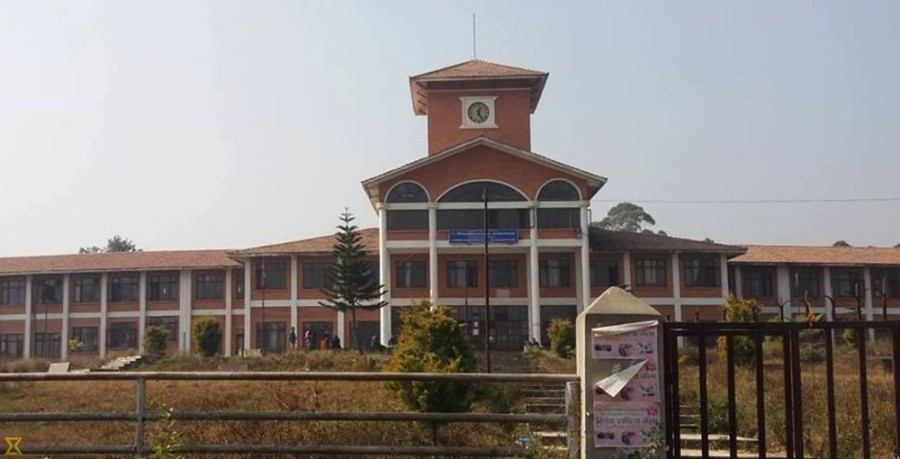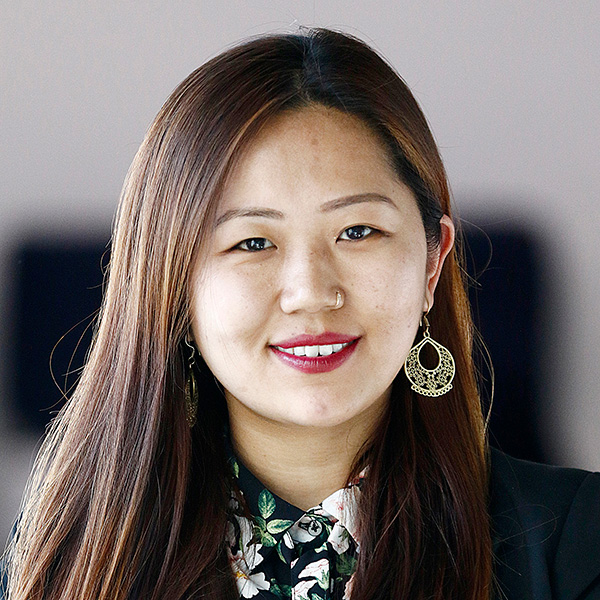National
Will Tribhuvan University be the first educational institution to have a sexual harassment policy in Nepal?
Months after articles and news stories about continued sexual harassment in the country’s oldest and largest university, it finally has put a team to work on addressing these issues through a grievance mechanism.
Bhrikuti Rai
More than six months after the first programme was held at Tribhuwan University to start the conversation about sexual harassment in the wake of articles and media reports about continued harassment in its sociology department, the university has finally formed a committee to set up a mechanism to deal with these concerns.
On Saturday, over two dozen women from academia, mostly from Tribhuvan University, gathered in a conference room in Kathmandu in the hopes of taking the conversation and action forward with a sense of urgency. Discussions revolved around their own failed attempts at trying to call out “problematic behaviour” of male colleagues in the absence of institutional mechanism to address grievances of sexual harassment, as well as factors, like the lack of code of conduct and even the lack of meeting rooms for teacher-student consultations, which may enable these kinds of behaviour.
“We need to hold consultation with different groups, so students, faculty members as well as administrative staff feel ownership in what the committee formulates,” said Bindu Pokharel of the Gender Studies Department.
Pokharel and her department colleagues had hosted a similar event in May to put the spotlight on how institutions like Tribhuvan University should handle sexual harassment complaints. They had also submitted a memo to the university’s high ranking officials, but heard nothing from them for months.
“We were stumped by the lack of action to further the conversation then and we now hope this committee’s work will make up for all the disappointment and frustration,” said Pokharel.
Last January, the Post reported how Krishna Bahadur Bhattachan, a retired senior lecturer, had harassed a number of students from the university’s Department of Sociology for years. The allegations against Bhattachan, an influential academic and indigenous rights activist, ranged from him making lewd remarks to inappropriately touching them during advisory sessions at his residence. Following the report and the university’s inaction, international academics from the UK had released a statement about their concerns regarding the university’s apathy.
And in February, the university suspended Baubalal Sah, assistant dean at the Faculty of Education, for allegedly misbehaving with a woman at the central campus.
But after that, there had been no official statement or action from the university to carry the conversation forward, until last week when the committee was formed.
The women, and a handful of men in the room, castigated the culture of silence and indifference that had allowed sexual harassment to go unchecked at the country’s biggest and oldest university, despite having laws against workplace harassment, hoping to convey a message to university officials about the importance of an effective mechanism in place to address such concerns.
Some of the participants, who were not from academia but had some success in introducing policies and practices to address sexual harassment at work, had some advice for Tribhuvan University, as it tries to introduce its own sexual harassment policy.
Radha Wagley of the Ministry of Forests and Environment, who’s had some success in institutionalising sexual harassment policy in the forestry department, was one of them.
“There is no point in creating a code of conduct at the university if the ones implementing it, or those in a position to take action, don’t accept it, so it’s important to make them a part in drafting the code,” said Wagley.




 9.51°C Kathmandu
9.51°C Kathmandu














